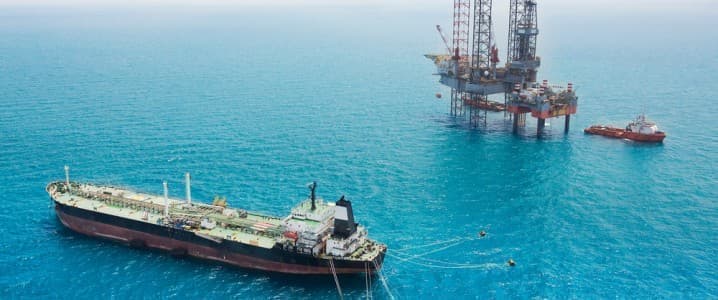Global Oil Majors Return to Frontier Exploration for Growth
Shrinking discovered volumes, rising oil and gas demand, and a renewed focus on energy security have driven the global oil and gas industry to refocus on frontier regions in pursuit of new discoveries essential for sustaining long-term growth. The peer group of six global majors – ExxonMobil, Shell, TotalEnergies, BP, Chevron, and Eni – is responsible for about 20% of the total conventional oil and gas volumes discovered since 2020. These companies possess the technical skills and financial muscle needed to explore technically challenging and high-cost frontier areas. These majors have communicated the importance, to varying degrees, of frontier exploration in their quest to replenish reserves bases and maintain profitability.
Invest in Gold
TotalEnergies lowered its exploration spending last year to $835 million from an annual budget of around $1 billion to $1.2 billion throughout 2017-2023. The French major is expected to hold exploration spending at 2024 levels this year, but despite the dip, its recent acquisitions suggest it has not lost a taste for frontier exploration. The company recently acquired a 25% working interest in 40 Chevron-operated federal offshore exploration leases in the Gulf of America, as well as a 25% stake in Suriname’s offshore Block 53. The company is targeting low-cost, low-emission options and aims for production growth of 3% per year through 2030.
ExxonMobil is seeking to replicate its success in Guyana, where it has discovered over 13 billion barrels of oil equivalent of recoverable resources since 2015. The US major has acquired exploration rights in Trinidad & Tobago and is also studying four offshore blocks in Libya. ExxonMobil’s deepwater expertise and latest drilling technologies could see it target previously inaccessible reservoirs.
Chevron has been one of the least active explorers among the majors, but since last year has been acquiring frontier exploration acreage across multiple regions, venturing into Brazil’s offshore, shallow waters elsewhere in South America, deepwater Africa, and emerging basins. The US major has acquired nine offshore blocks in Brazil’s Foz do Amazonas Basin, an environmentally sensitive but geologically promising frontier area, and has also signed two risk service contracts in Angola’s ultra-deep waters, where the country is yet to replicate the success seen in its deepwater and intermediate areas. Chevron has also shown renewed interest in Namibia with participation in the Orange and Walvis basins.
BP has revamped its exploration strategy, backing off its low-carbon energy commitments and announcing plans to grow its oil and gas business. The UK major plans to drill around 40 wells over the next three years and will spend an average of $1.2 billion per year on exploration. BP’s recent Bumerangue discovery in Brazil marks a return to deepwater exploration, and the company is also planning to drill its first ultra-deepwater well off Libya. The company also formally completed the acquisition of interests in two offshore exploration and development blocks in Azerbaijan’s sector of the Caspian Sea.



Leave a Comment
Your email address will not be published. Required fields are marked *